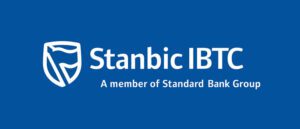
Naira closes flat at N480/$ at parallel market
By Kayode Tokede
Naira at parallel market closed down by 0.75 per cent against the pound sterling to close at N670 and traded flat at N480 against the dollar on Wednesday.
Conversely, it gained 0.34 per cent against the euro to close at N580.
At the Investors & exporters Foreign Exchange window (I& EFX), while the Naira lost by 1.57per cent and 1.74 per cent vs the euro and pound sterling closing at N496.33 and N577.59 respectively, it inched up by 0.34 per cent against the dollar printing at N408.60.
The opening indicative rate closed at N409.5 to a dollar on Tuesday. This represents a N1.46 drop when compared to N409.5 to a dollar that was recorded the previous trading day on Monday, February 22, 2021.
Also, an exchange rate of N429.75 to a dollar was the highest rate during intra-day trading before it closed at N408.6/$1. It also sold for as low as N388.75/$1 during intra-day trading.
The FMDQ said a turnover of $212.43 million was traded by investors and exporters on Wednesday.
FMDQ had said foreign exchange turnover increased from $52.58/ million recorded on Monday, February 22, 2021, to $423.37 million on Tuesday, February 23, 2021.
A cursory look at the data shows that Tuesday’s figure of $123.37 million is the highest turnover recorded since 14th January 2021, over a month ago.
Further checks revealed that naira at the interbank market of the Central Bank of Nigeria (CBN) traded flat at N379 against the dollar on Wednesday.
“Going forward, we expect the FX market to be dictated by heightened dollar demand and CBN FX policies,” analysts at Investment One research said.
Meanwhile, the money market rates declined today as Open Buy Back and Overnight rates declined by 25 basis points and 17basis points to close at 1.50 per cent and 1.83 per cent respectively.
The bond market was positive today as yields declined across most maturities.
“We witnessed the yield on the 10yr benchmark bond close down by 2bps to close at 10.77per cent, while the yields on the 5yr and 7yr benchmark bonds closed flat at 9.60 per cent and 10.33 per cent respectively,” analysts at Investment one research added.
Also, Nigeria’s external reserve dipped by 0.41 per cent on Monday February 22, 2021, to stand at $35.28 billion.
This represents a decline of $145.9 million in foreign reserve, the highest single-day loss since April 2020.
Nigeria’s external reserve position has now hit its lowest level in almost two months, losing over $1.1 billion in less than a month.
This downturn has continued to persist despite bullish trends in the global crude oil market. However, Nigeria will need to boost its external reserve to hit $40 billion, as this will help meet some of the pent-up demand that has piled up as a result of the crash in global oil prices in 2020.



